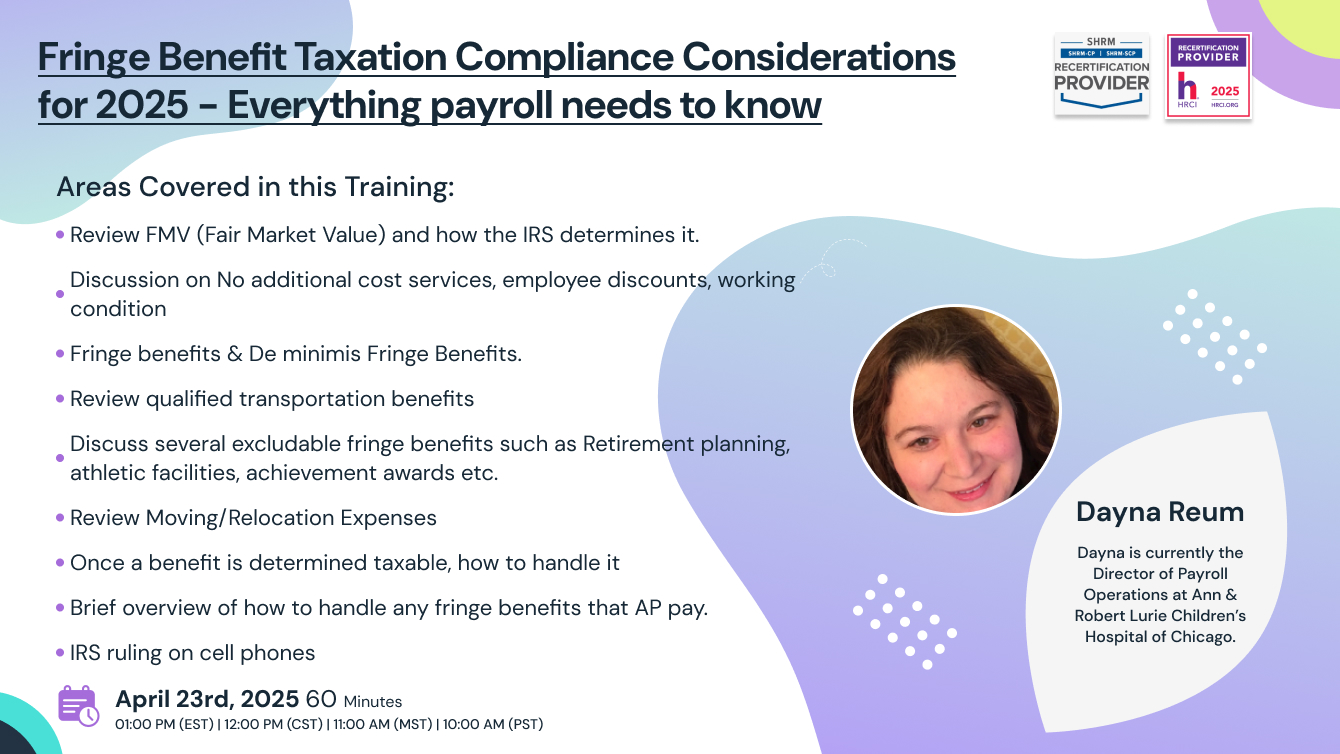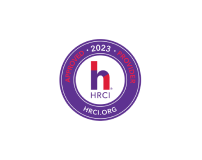Overview:
Fringe benefits are forms of extra compensation provided by employers to employees in addition to their regular wages, such as cash, cash-equivalents, assistance programs or other non-monetary benefits. Under the Internal Revenue Code (IRC) Section 61, all income is considered taxable unless an exclusion applies, such as a designated ‘fringe benefit.’
There are a number of benefits that can be fully or partially excluded from taxable wages, but the rules for exclusion vary for different benefits and even for different taxes with regard to the same benefit. The rules can be complex and confusing with regard to certain fringe benefits and sometimes the rules for one benefit can be confused with the rules for a different benefit as is often the case with de minimis benefits and gifts.
Although many employers wish to offer these types of additional benefits for employees, it can be challenging to navigate the tax implications and potential requirements for these plans. For taxable non-cash benefits, valuation can be a complex process and sometimes special rules apply for specific benefits. It is critical to know when to treat a benefit as provided to the employee so that the employer is compliant with tax withholding and deposit requirements.
Areas covered in this Training:
• Review FMV (Fair Market Value) and how the IRS determines it.
• Discussion on No additional cost services, employee discounts, working condition
• Fringe benefits & De minimis Fringe Benefits.
• Review qualified transportation benefits
• Discuss several excludable fringe benefits such as Retirement planning, athletic facilities, achievements, awards etc.
• Discuss fringe benefits that should be taxable
• Review Moving/Relocation Expenses
• Review executive taxation items, like spousal travel. Company aircraft usage etc.
• Once a benefit is determined taxable, how to handle it
• Brief overview of how to handle any fringe benefits that AP pay.
• Review of at home office amounts for remote workers
• IRS ruling on cell phones
Why Attend this Training:
Companies are providing more fringe benefits to employers more than ever before, thus reduces company cost but raises employee morale. Because of this the IRS has more to say on what Fringe Benefits are taxable and what are not. Benefits and perks come in many forms, from training and tuition to insurance coverage, meals and lodging, employer-provided benefits may be valuable perks for employees. In general, everything of value received by an employee because of the employment relationship is taxable income to the worker. Unless there is a statutory provision that excludes any compensation or benefit from taxable wages, the compensation or benefit is income.
The IRS for non-taxable fringe benefits puts a lot of regulation around how the fringe benefit is given and when that also determines if a thought non-taxable item may end up being taxable. Participants with walk away with a better understanding of the IRS view on fringe benefit taxation. The details of the IRC exceptions allowed by the IRS will be detailed and explained to participants. Participant will be able to better identify and calculate the fair market value of fringe benefits for taxation purposes.
Suggested Attendees:
• Payroll Supervisors and Personnel
• HR Supervisors and Personnel
• Public Accountants
• Internal Auditors
• Tax Compliance Officers
• Enrolled Agents
• Employee Benefits Administrators
• Officers and Managers with Tax or Benefits Compliance Oversight
• Company / Business Owners
• Managers/ Supervisors
• Public Agency Managers
• Audit and Compliance Personnel / Risk Managers

Dayna Reum
Dayna is currently the Director of Payroll Operations at Ann & Robert Lurie Children’s Hospital of Chicago. Dayna has been heavily involved in the payroll field for over 17 years. Starting as a payroll clerk at a small Tucson company, Dayna moved on to be a Payroll Team Leader at Honeywell Inc. During Dayna’s time at Honeywell she obtained her FPC (Fundamental Payroll Certification) through the American Payroll Association. She also received several merit awards for Customer Service and Acquisitions and Divestitures.
Dayna is no stranger to teaching she has taught at the Metro Phoenix American Payroll Association meetings and at the Arizona State Payroll Conference. Topics including Payroll Basics, Global/Cultural Awareness, Immigration Basics for the Payroll Professional, Multi-State and Local Taxation and Quality Control for Payroll, International and Canadian payroll. Dayna has her CPP (Certified Payroll Professional) through the APA. She also serves on the National American Payroll Association on the National Strategic Leadership Task Force, Government Affairs Task Force (PA Local tax subcommittee). Dayna has received a Citation of Merit for her service along with being a Gold Pin member of the APA. Besides her payroll accomplishments, Dayna is certified in HR hiring and firing practices and is a Six-Sigma Greenbelt.

SHRM -
Standeagle is recognized by SHRM to offer Professional Development Credits (PDCs) for the SHRM-CPSM or SHRM-SCPSM. This program is valid for 1.0 PDCs for the SHRM-CPSM or SHRM-SCPSM. For more information about certification or recertification, please visit - portal.shrm.org.

HRCI -
This webinar has been approved for 1.0 HR (General) re-certification credit hours toward California, GPHR, HRBP, HRMP, PHR, and SPHR recertification through the HR Certification Institute.
The use of this seal is not an endorsement by the HR Certification Institute of the quality of the activity. It means that this activity has met the HR Certification Institute’s criteria to be pre-approved for re-certification credit.

ACCREDITATIONS


